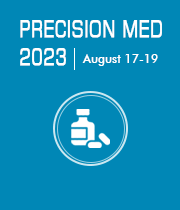Market Strategies & Challenges In Personalised Medicine
Personalized medicine – the idea of giving patients with treatments that are more effective and have fewer side effects – has been regarded as the greatest opportunity for the health-care system in recent years. In the meanwhile, for some therapies, this has already become a reality. However, because the necessary knowledge and technological foundation is still being developed, just a few applications, products, and services have been commercialized to date. Furthermore, current reimbursement practices, approval procedures, and medical professionals continue to favor traditional drugs. A large-scale implementation of personalized medicine necessitates a shift in the health-care system in general, as well as the pharmaceutical and life-science businesses in particular. While the economic importance of product innovations has long been recognized and encouraged, the focus over the last three decades has shifted to services and product-service systems.
- Market Trends in Personalized Medicine
- Educational Campaigns
- Companion Diagnostic Market
- Strategic Analysis of Industry Trends
- New Strategies & Economic Implications

Bernd Blobel
University of Regensburg, Germany
Roy Gary Beran
University of New South Wales, Australia
Matthias Schwab
University of Tubingen, Germany
Thomas Webster
Interstellar Therapeutics, United States
Boris Tankhilevich
Magtera, Inc., United States
Isabella Friis Jorgensen
University of Copenhagen, Denmark


Title : The use of anti seizure medication therapeutic blood level determination to personalise the treatment of epileptic seizures especially in patients attending the accident and emergency department
Roy Gary Beran, University of New South Wales, Australia
Title : Personalized and precision medicine (PPM) can be established as a unique healthcare model through biodesign-driven and inspired biotech, translational applications. This approach aims to ensure human healthcare, wellness, and biosafety.
Sergey Suchkov, Institute for Biotech & Global Health of RosBioTech and A.I. Evdokimov MGMSU, Russian Federation
Title : Monitoring folds localization in ultra-thin transition metal dichalcogenides using optical harmonic generation
Ahmed Raza Khan, Australian National University, Australia
Title : A systematic review of regulatory approaches for Direct- To- Consumers (DTC) genetic testing
Kavitha Palaniappan, Duke-NUS Medical School, Singapore
Title : Regulatory framework of in vitro diagnostic and artificial intelligence for precision medicine
Pei Ting Sarah Chou, Regulatory Affairs Professionals Society, Taiwan
Title : Unraveling cancer stem cell signatures in circulating tumor cells of metastatic colorectal cancer: Investigating ALDH1A1 and the repurposing potential of disulfiram via scRNA-seq
Nurul Syakima Ab Mutalib, Universiti Kebangsaan Malaysia, Malaysia